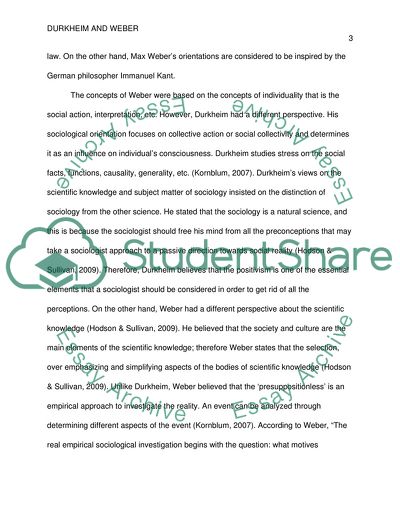Cite this document
(Emile Durkheim and Max Weber as the Most Influential Sociologists of Case Study Example | Topics and Well Written Essays - 1750 words, n.d.)
Emile Durkheim and Max Weber as the Most Influential Sociologists of Case Study Example | Topics and Well Written Essays - 1750 words. https://studentshare.org/sociology/1830401-a-comparative-research-paper-on-two-20th-century-sociologist
Emile Durkheim and Max Weber as the Most Influential Sociologists of Case Study Example | Topics and Well Written Essays - 1750 words. https://studentshare.org/sociology/1830401-a-comparative-research-paper-on-two-20th-century-sociologist
(Emile Durkheim and Max Weber As the Most Influential Sociologists of Case Study Example | Topics and Well Written Essays - 1750 Words)
Emile Durkheim and Max Weber As the Most Influential Sociologists of Case Study Example | Topics and Well Written Essays - 1750 Words. https://studentshare.org/sociology/1830401-a-comparative-research-paper-on-two-20th-century-sociologist.
Emile Durkheim and Max Weber As the Most Influential Sociologists of Case Study Example | Topics and Well Written Essays - 1750 Words. https://studentshare.org/sociology/1830401-a-comparative-research-paper-on-two-20th-century-sociologist.
“Emile Durkheim and Max Weber As the Most Influential Sociologists of Case Study Example | Topics and Well Written Essays - 1750 Words”. https://studentshare.org/sociology/1830401-a-comparative-research-paper-on-two-20th-century-sociologist.


